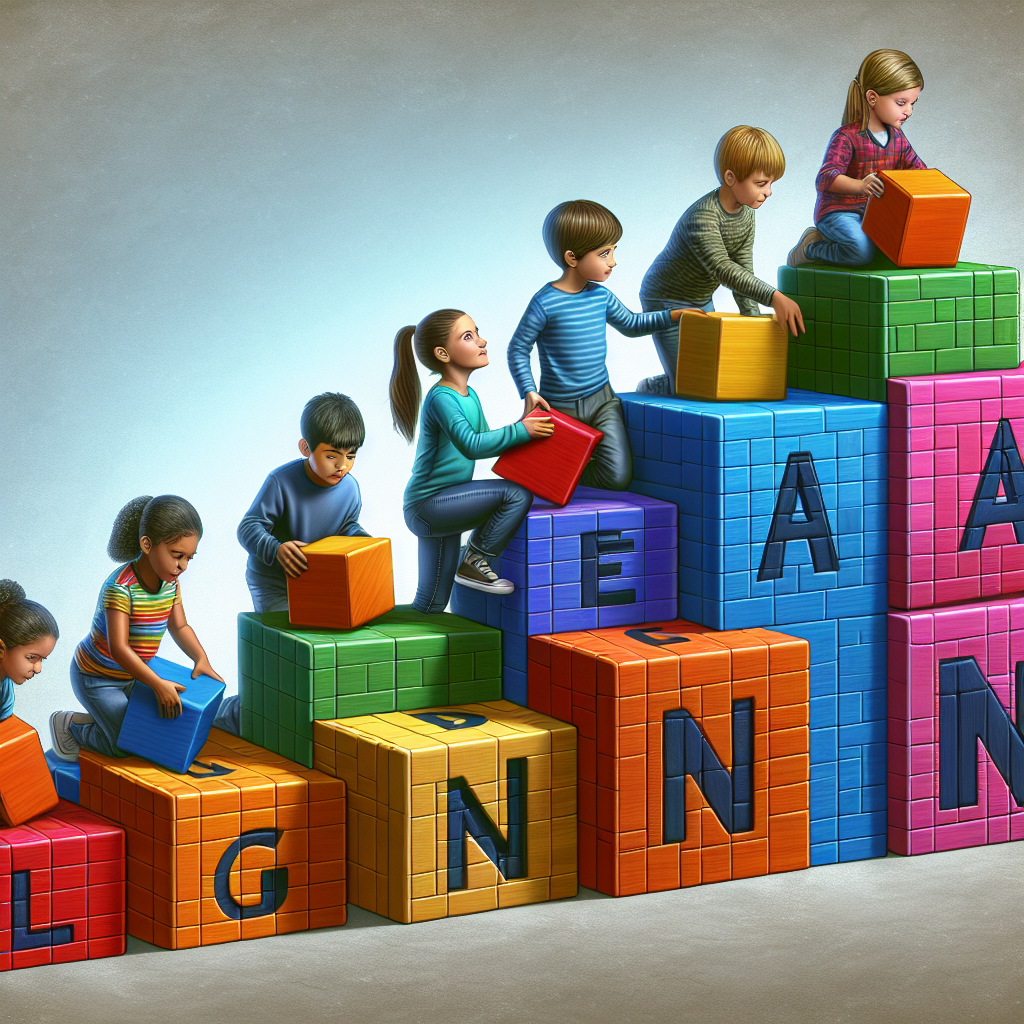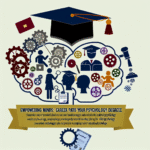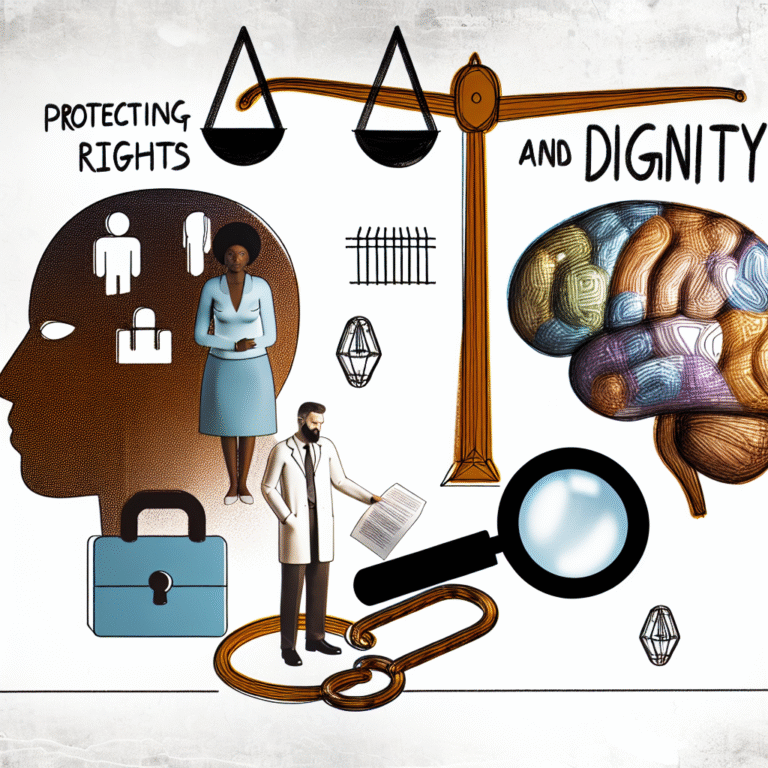
Cognitive Development: The Essential Building Blocks of Learning and Growth
Introduction
In the grand tapestry of human development, cognitive development stands out as an essential and dynamic thread. It is the engine driving our ability to think, learn, and adapt to our rapidly changing world. From infancy through adolescence and into adulthood, cognitive development shapes not only how we process information but also how we create meaningful relationships and understand complex concepts. This article will delve into cognitive development as the building blocks of learning and growth, exploring its significance, stages, and real-world applications. Get ready to unlock the secrets of the mind and discover how cognitive development enriches our lives every day!
What is Cognitive Development?
Cognitive development refers to the growth and changes in mental processes—such as perception, memory, reasoning, and problem-solving—that occur throughout a person’s life. These processes form the foundation for acquiring knowledge and skills, influencing how individuals interact with the world around them.
The Importance of Cognitive Development
Understanding cognitive development is vital for parents, educators, and policymakers alike, as it lays the groundwork for learning and societal contribution. By nurturing cognitive growth, we can foster a generation equipped with critical thinking skills and creativity—traits essential for navigating the complexities of the modern world.
Stages of Cognitive Development
The stages of cognitive development, primarily articulated by renowned psychologist Jean Piaget, provide a structured framework for understanding how cognitive abilities evolve over time. Here’s a breakdown of these stages:
1. Sensorimotor Stage (Birth to 2 years)
In the sensorimotor stage, infants explore the world through their senses and motor actions. They begin to understand object permanence—the idea that objects continue to exist even when they cannot be seen.
Case Study: Infant Object Permanence
A study observed infants between 8 to 12 months during play with toys. Researchers hid a toy under a blanket while the child watched. It was noted that those who had previously demonstrated an understanding of object permanence actively searched for the hidden toy, showcasing a growing cognitive capability. This exemplifies how early interactions influence cognitive development.
2. Preoperational Stage (2 to 7 years)
Children in the preoperational stage begin to engage in symbolic play and learn to use language. However, their thinking is still intuitive rather than logical. They often view the world egocentrically, making it challenging for them to understand different perspectives.
Case Study: Egocentrism in Children
A study involving three- to four-year-olds asked them to describe a scene from a doll’s perspective. Children consistently struggled to project the doll’s viewpoint, further illustrating their egocentric thinking. This stage of cognitive development highlights the importance of guided interaction to foster empathy and diverse perspectives.
3. Concrete Operational Stage (7 to 11 years)
During the concrete operational stage, children develop logical thinking but struggle with abstract concepts. They can classify and serialize objects based on multiple dimensions, improving their problem-solving skills.
Case Study: Conservation Tasks
In a conservation study, children were asked to determine whether a volume of liquid remained unchanged when poured from a short, wide glass to a tall, narrow one. The majority of concrete operational children correctly identified that the quantity was the same, demonstrating their improved cognitive ability to understand concepts such as volume and quantity.
4. Formal Operational Stage (12 years and up)
The formal operational stage marks the emergence of abstract and hypothetical thinking. Teenagers can engage in systematic planning and reason about abstract concepts like justice and love.
Case Study: Abstract Thinking in Adolescents
Research on adolescents revealed an ability to generate multiple hypotheses to solve complex problems—a cognitive leap from concrete operations. This ability to think abstractly prepares them for advanced education and complex life decisions, illustrating the critical importance of cognitive development at this stage.
Influencing Factors in Cognitive Development
Cognitive development does not occur in a vacuum. Several factors can positively or negatively influence this growth, including:
1. Environment
The surrounding environment plays a crucial role in cognitive development. Enriched environments with stimulating activities and interactions promote more robust cognitive growth, while deprived settings can hinder developing skills.
2. Nutrition
A balanced diet is essential for optimal brain function. Deficiencies during critical developmental windows can lead to delays in cognitive milestones.
3. Socioeconomic Status
Children from higher socioeconomic backgrounds often have access to learning resources, educational opportunities, and enrichment activities that promote cognitive development. Conversely, lower socioeconomic status may limit these opportunities, impacting growth.
4. Parenting Style
Authoritative parenting, characterized by warmth, guidance, and structure, is shown to foster resilience and high cognitive ability in children.
Cognitive Development and Learning
The interplay of cognitive development and learning is intricate and profound. Education systems that integrate knowledge of cognitive development can boost learning outcomes, giving children the tools to maximize their potential. The principles of cognitive development are increasingly being applied in educational settings to tailor learning experiences that cater to the different developmental stages.
The Role of Play in Cognitive Development
Play serves as a vital avenue for cognitive development. Through play, children experiment with concepts, develop problem-solving skills, and foster social interactions.
Case Study: The Benefits of Play
A study revealed that preschoolers engaged in guided play show improved cognitive flexibility and problem-solving abilities compared to those who participated in traditional rote learning. This reinforces the idea that play is not just leisure; it is a powerful mechanism for cognitive growth.
Educational Strategies Supporting Cognitive Development
Understanding cognitive development allows educators to implement strategies that align with the different stages of growth. These strategies may include:
- Differentiated Instruction: Tailoring lessons to meet various learners’ needs.
- Inquiry-Based Learning: Encouraging exploration and questioning to reinforce critical thinking.
- Leadership Opportunities: Providing students with responsibilities to enhance autonomy and decision-making skills.
Supporting Cognitive Development Beyond the Classroom
Cognitive development extends beyond the academic arena. Parents, caregivers, and communities play a critical role in fostering an environment conducive to growth that includes:
- Encouraging Reading: Expanding vocabulary and comprehension skills.
- Promoting Extracurricular Activities: Engaging in sports, arts, and clubs to enhance teamwork and creativity.
- Facilitating Discussions: Engaging in conversations about relevant topics to stimulate critical thought.
The Future of Cognitive Development Research
As our understanding of the brain continues to evolve, the future of cognitive development research looks promising. Topics of interest include:
- Neuroplasticity: Understanding how the brain evolves and adapts throughout life.
- Cognitive Enhancements: Exploring how technology can aid cognitive growth.
- Cross-Cultural Studies: Examining how cultural contexts impact cognitive development.
These avenues not only enhance the academic sphere but also fortify our comprehension of human behavior and learning across diverse populations.
Conclusion
Cognitive development undeniably represents the building blocks of learning and growth. Equipped with this knowledge, parents, educators, and communities can create nurturing environments that foster cognitive abilities, preparing future generations for the challenges ahead. By investing in cognitive development, we are investing in a brighter, more innovative future.
Key Takeaways
- Understand the Stages: Familiarity with the stages of cognitive development can help nurture children’s learning appropriately.
- Promote Healthy Environments: Environments rich in stimulation and positive interactions support cognitive growth.
- Incorporate Play: Recognizing the value of play can enhance learning experiences and creativity.
- Support Beyond Classrooms: Engage families and communities to further strengthen cognitive development in various settings.
- Stay Informed: Keeping up with the latest research allows for better-informed practices that support cognitive growth.
FAQs
1. What is the role of cognitive development in early childhood?
Cognitive development in early childhood sets the stage for future learning by establishing the foundational skills necessary for thinking, reasoning, and problem-solving.
2. How can parents encourage cognitive development at home?
Parents can promote cognitive development by providing stimulating activities, reading together, engaging in meaningful conversations, and encouraging exploration through play.
3. What are common signs of developmental delays in cognitive skills?
Signs may include difficulty with age-appropriate problem-solving, challenges in understanding concepts, poor memory skills, and limited language development.
4. How does social interaction impact cognitive development?
Social interaction enriches cognitive development by promoting language, social skills, and emotional intelligence, which are crucial for effective learning and communication.
5. Can cognitive development be enhanced in adults?
Yes, cognitive development and neuroplasticity allow adults to continue learning and growing, especially through lifelong learning, skill development, and mental challenges.
In conclusion, cognitive development is not just a childhood endeavor; it is an ongoing journey that shapes us throughout our lives, influencing our ability to think critically and contribute meaningfully to society. By understanding and nurturing cognitive development, we ensure the foundations are solid for a future packed with learning, growth, and innovation.

















